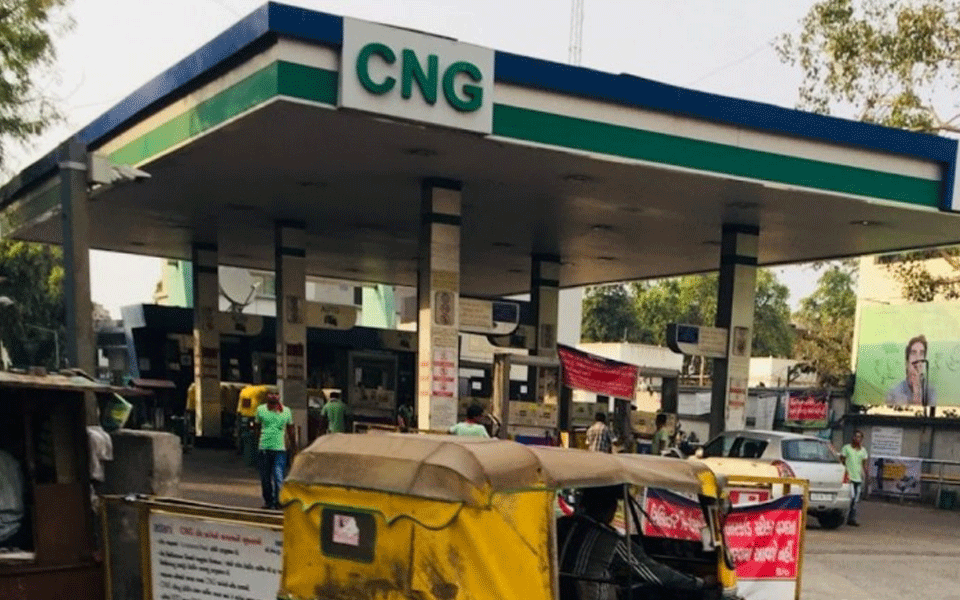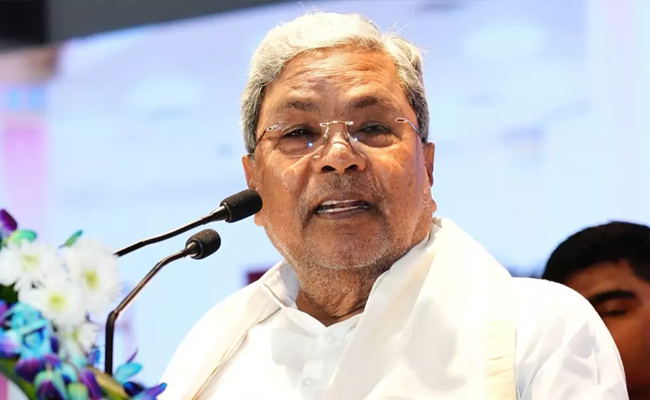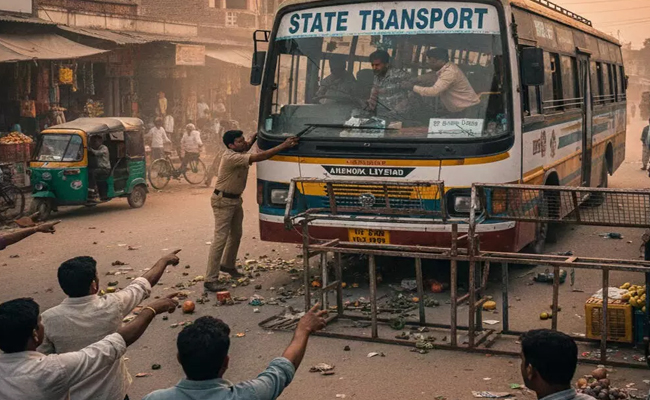New Delhi(PTI): After hike in rates of petrol, diesel and LPG, the prices of CNG and cooking gas piped to household kitchens (PNG) in the national capital were hiked on Thursday by Re 1.
CNG price in NCT of Delhi has been increased to Rs 59.01 per kg from Rs 58.01, according to the information posted on the website of Indraprastha Gas Ltd - the firm which retails CNG and piped cooking gas in the national capital.
This is the third increase in CNG rates this month, which follows a spike in input (natural gas) prices across the globe. On the previous two occasions, rates had gone up by Rs 0.50 per kg.
Following the firming up of international gas rates, IGL has been raising CNG rates periodically. Prices have gone up by about Rs 5.50 per kg this year alone.
Also, the price of piped natural gas that households get for cooking purposes has also been increased by Re 1 to Rs 36.61 per standard cubic meter in Delhi.
The increase follows Rs 1.60 per litre hike in petrol and diesel prices affected during the last two days and a Rs 50 per cylinder raise in the cooking gas LPG rates.
After rising by 80 paise per litre on March 22 and 23, petrol and diesel prices remained unchanged on Thursday, possibly because of the heat the government faced on the issue in Parliament on the two previous days.
In Noida, Greater Noida and Ghaziabad, CNG will cost Rs 61.58 per kg and in Gurugram the price is at Rs 67.37 per kg.
Similarly, PNG cost has increased to Rs 35.86 per SCM in Noida, Greater Noida and Ghaziabad and to Rs 34.81 in Gurugram.
Prices vary from city to city depending on the incidence of local taxes such as VAT.
A record 137-day hiatus in petrol and diesel price revision ended on March 22, with an 80 paise per litre increase in rates and a similar proportion hike followed on Wednesday.
On March 22, the price of a 14.2-kg LPG cylinder was increased to Rs 949.50 in the national capital. In some places, the LPG price has touched Rs 1,000.
Prices had been on a freeze since November 4, ahead of the assembly elections in states like Uttar Pradesh and Punjab - a period during which the cost of raw material (crude oil) soared by USD 30 per barrel.
The rate revision was expected soon after assembly elections ended on March 10, but it was put off.
Oil companies are now recouping the losses.
They "will need to raise diesel prices by Rs 13.1-24.9 per litre and Rs 10.6-22.3 a litre on gasoline (petrol) at an underlying crude price of USD 100-120 per barrel," Kotak Institutional Equities said in a note.
According to CRISIL Research, the price of crude oil (raw material for making petrol and diesel) has averaged USD 100 per barrel in the current quarter and a full pass-through would require a Rs 9-12 per litre increase in the retail prices. And if the average crude oil price rises to USD 110-120, the hike required would be Rs 15-20 per litre.
India is 85 per cent dependent on imports for meeting its oil needs and so retail rates adjust accordingly to a global movement.
The issue of price rise figured in both Lok Sabha and Rajya Sabha, with opposition protesting the additional burden on common man already reeling under the pressure of high inflation and commodity price rise. The opposition forced adjournments in Rajya Sabha while they walked out of Lok Sabha on the issue.
With no increase in petrol and diesel prices on Thursday, both Houses of Parliament functioned normally.
Let the Truth be known. If you read VB and like VB, please be a VB Supporter and Help us deliver the Truth to one and all.
Mumbai (PTI): Rupee depreciated 9 paise to an all-time low of 90.58 against US dollar in early trade on Monday, weighed down by uncertainty over an India-US trade deal and persistent foreign fund outflows.
Forex traders said rupee is trading with a negative bias as investors are in wait and watch mode and awaiting cues from the India-US trade deal front.
At the interbank foreign exchange market, the rupee opened at 90.53 against the US dollar, then fell further to an all-time intraday low of 90.58 against the greenback, registering a fall of 9 paise over its previous close.
On Friday, the rupee had slipped 17 paise to close at an all-time low of 90.49 against the American currency.
Meanwhile, the dollar index, which gauges the greenback's strength against a basket of six currencies, was trading 0.05 per cent lower at 98.35.
Brent crude, the global oil benchmark, was trading higher by 0.52 per cent at USD 61.44 per barrel in futures trade.
On the domestic equity market front, the 30-share benchmark index Sensex was trading 298.86 points lower at 84,968.80, while the Nifty was down 121.40 points at 25,925.55.
Foreign Institutional Investors sold equities worth Rs 1,114.22 crore on Friday, according to exchange data.
"FPIs continue to be in selling mode in equity and debt while RBI has been selling dollars to fund their long positions," said Anil Kumar Bhansali, Head of Treasury and Executive Director Finrex Treasury Advisors LLP.





